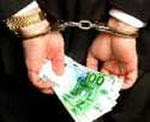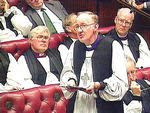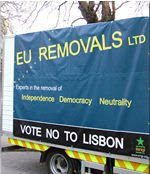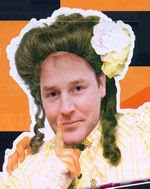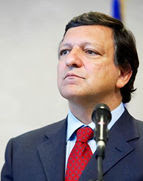Under the government's Renewable Transport Fuel Obligation, from this month all petrol and diesel sold at British pumps must include at least 2.5% biofuels - renewable fuels, made from crops such as sugar cane or maize.
This target is set to rise to 5% by 2010, towards achieving 10% of vehicle traffic powered by biofuels by 2020.
These are targets that the EU has instructed the government to meet, initially via its Directive on the Promotion of the use of biofuels and other renewable fuels for transport (2003/30/EC) .
This Directive stipulates that national measures must be taken by countries across the EU aiming at replacing 5.75% of all transport fossil fuels with biofuels by 2010, and the European Commission back in January this year proposed a new Directive setting the '10% by 2020' target.
Result of EU targets
The consequences of this action were set out quite comprehensively in yesterday's Guardian.
Spurred by generous subsidies from the US government and these EU targets to increase the use of biofuels, at least 8m hectares (20m acres) of maize, wheat, soya and other crops which once provided animal feed and food have been taken out of production in the US - a major supplier to UK fuel companies now having to meet the new targets in their products. Additionally, large areas of Brazil, Argentina, Canada and eastern Europe are diverting sugar cane, palm oil and soybean crops to feed the new thirst for biofuels.
The result, exacerbated by energy price rises, speculation and shortages because of severe weather, has been big increases of all global food commodity prices.Robert Zoellick, president of the World Bank, said this week that prices of all staple food had risen 80% in three years, and that 33 countries faced unrest because of the price rises. The bank predicts rice price rises of 55% in 2008.
Protests in world's poorest countries
The crisis has already sparked protests and even riots in the world's poorest countries, including Guinea, Egypt, Morocco, Uzbekistan, Yemen, Burkina Faso, Mauritania, Niger, Uzbekistan, Senegal, Haiti, Bolivia, Indonesia, Ivory Coast, Egypt, Vietnam, Cambodia, India, the Philippines and Thailand.
Many of these countries are reacting by placing export restrictions on home-grown staple foods and drastically cutting duties and taxes on imports.
In Bangladesh, where families spend up to 70% of income on food, more than 50,000 households are getting emergency food after rice price rises. A government source said: "One reason is that the overall drop in food production because of biofuels has prevented food being exported."
Josette Sheeran, director of the World Food Programme, said in Ethiopia this week: "The cost of our food has doubled in just the last nine months. We are seeing more urban hunger than ever before. Often we are seeing food on the shelves but people being unable to afford it."
Friends of the Earth claim that biofuels are not only pushing up food prices, but they are also linked to human rights abuses and land-grabs from the poor. The group is calling for EU targets for increasing biofuel use by adding it to petrol to be scrapped.
Targets threaten natural habitats
In addition to the problems for food production, a separate article in the following day's Guardian cites an example in Kenya to demonstrate the environmental consequences of the EU's rush for biofuels.
The article takes a look at the Tana river delta - lush wetlands on the east coast of Africa teeming with birds and home to hippos and crocodiles, lions and elephants - set to be the latest victim of the EU-driven thirst for biofuels.
To meet demand, Kenya's Mumias Sugar Company is planning to plant 20,000 hectares of the Tana delta to grow sugar cane for biofuels and food.
Environmental campaigners say that the £165m project, including an ethanol refinery and food-processing plant, would destroy the wetlands - home to 345 species of birds considered 'internationally important' to the global populations.
They claim that if the project is approved, large areas would become 'ecological deserts', destroying wintering grounds for birds and the bugs they feed on, and dams would divert water essential to wildlife and cattle herders during the dry season.
Paul Matiku, executive director of campaign group Nature Kenya, is also worried about water diversion causing soil erosion, pollution harming fish stocks and damage to the nascent tourism industry.
"This development would be a national disaster, wreaking havoc with the area's ecosystem and spelling the end for wildlife across much of the delta," he said.
Government not in charge
In a sign of growing splits within government, last week the former Environment minister Elliot Morley called for the government to delay the new biofuel requirement until 'comprehensive certification and assessment schemes are put in place', echoing criticism by the Environment Department's chief scientific adviser, Professor Robert Watson.
However, Mr Morley appears to be unaware of the extent to which the government is only acting according to EU instructions - as decided by majority vote in the EU Council of Ministers - and has little choice but to push biofuels as a means to achieve EU targets.
While the EU defends itself by pointing to regulations governing the sustainability of biofuel production, critics claim that EU-led demand will indirectly cause supplies to be sucked in from other markets, which would then be forced to turn to new suppliers like Mumias.
Beyond democratic debate
Whatever people's views on the merits or otherwise of biofuels, the most dangerous aspect of this is that it is one of an increasing number of policy areas that, decisions having been handed to the EU, have now been removed from democratic debate.
Under the EU's treaties, our elected government is forced to take this action regardless of domestic public opinion or even the views of its own ministers as the targets are stipulated by the EU Directive.
Within the EU, where such Directives are shaped, decisions are made on environmental policy by majority voting in the Council of Ministers.
This means that those we take the trouble to elect can be over-ruled by ministers from other EU member countries - completely unaccountable to people here - even if they did object to the policy and the targets imposed regardless. Under EU Treaties, the government is then committed to implementing them.
This is the undemocratic nature of government the European Union project has created for those in all its member countries.
Through the likes of the Lisbon Treaty, passing more powers to EU institutions, making more policy areas subject to majority voting, the state of democracy on our continent is degrading ever more rapidly.
How many outside the political elite and those who benefit financially from the EU system seriously still believe that this is a stable or sustainable path for the future of our continent?
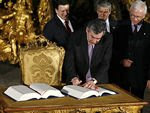 A Professor from the European Research Institute at the University of Birmingham has reinforced doubts about the claimed need for the Lisbon Treaty, arguing that under the current treaty the EU continues to pass laws just as quickly as it did before enlargement.
A Professor from the European Research Institute at the University of Birmingham has reinforced doubts about the claimed need for the Lisbon Treaty, arguing that under the current treaty the EU continues to pass laws just as quickly as it did before enlargement.
